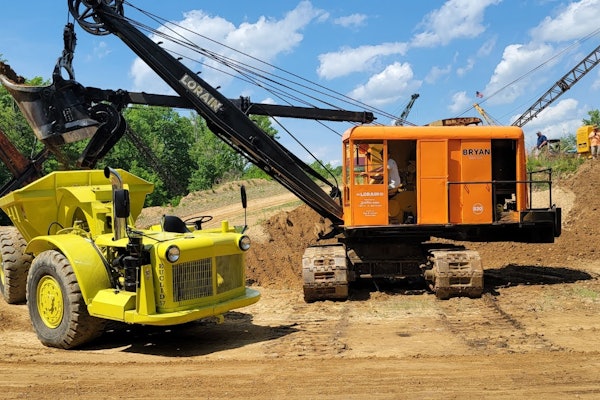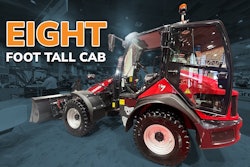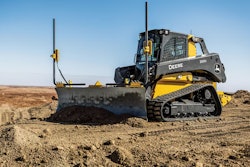While most of the environmental discussion – not to mention hand wringing – has centered on making our way through Tier 3 and 4 engine emission regulations, there’s more happening on the environmental front than meeting EPA mandates. In the first quarter of this year there seems to be an invigorated public relations mandate among construction equipment companies to go green.
For example, Volvo – amid much fanfare at an event held at the Swedish embassy in Washington, D.C. – unveiled a diesel-electric hybrid engine for Volvo and Mack over-the-road concept trucks, developed in partnership with the U.S. Air Force. And Volvo’s plans extend beyond trucks, with hybrids planned for excavators and wheel loaders. (Check out next month’s issue of Equipment World for this story.)
In January, New Holland expanded on a previous announcement made last year at the Intermat trade show in Paris, and gave North American users attending the World of Concrete a peek at its prototype Hybrid 7-metric-ton crawler excavator. Designed by CNH Global corporate sister Kobelco Construction Machinery, the excavator’s fuel consumption and carbon dioxide emissions are 40 percent less than those of New Holland’s current E70 mid-size excavator.
Following announcements last year by Case Construction Equipment and John Deere they would accept B5 biodiesel in their machines, JCB now reports their engines will accept a B20 blend (80 percent petrodiesel and 20 percent bio-oils).
And Caterpillar signed up in January as a card-carrying member of the U.S. Climate Action Partnership, which calls for U.S. policy makers to establish a national mandatory emissions reduction program to address climate change. The business-environmental partnership stresses a market-driven approach that avoids local or regional solutions – such as regulations now proposed in California (see our story on page 15.)
Of course, all this effort must face market forces. Both Volvo and New Holland have declined to list actual production dates on their hybrids. It’s easier to justify the additional cost of a hybrid machine if the owner of your job mandates its use. The proposition becomes more dicey if you’re working under green restrictions and your competitor three counties away is not.
In the meantime, the race is clearly on to see who can claim a head start on this issue.









